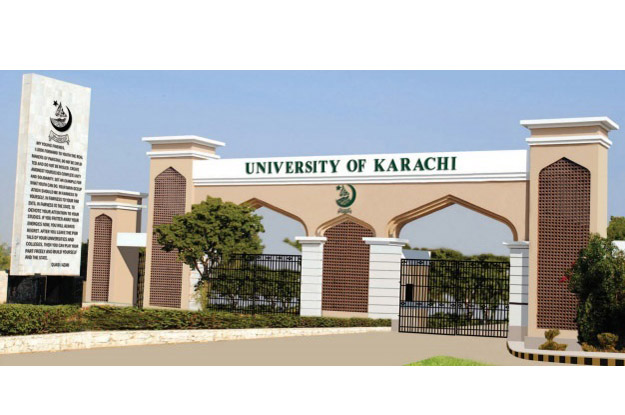
Although it may be widely understood that government organisations all work in unison, often when conflicts emerge between the people who sit at their helm, it can land entire institutions at loggerheads and on the track towards governmental disarray.
A similar situation appears to be spanning out within the country’s higher education sector where the Higher Education Commission, a national regulatory body, appears to be locking horns with the Hussain
Ebrahim Jamal (HEJ) Research Institute and other donor organisations affiliated with the Karachi University (KU), the country’s public sector university.
This conflict roots back to some three years ago when the HEC attempted a financial and performance audit of HEJ and other KU donors organisations. As an unanticipated result of which, HEC Chairperson Dr Tariq Banuri was removed from office last year, but was re-instated by the Islamabad High Court (IHC) earlier last month.
However, the details that emerged in the thick of this institutional chaos, suggest that the Federal Ministry of Education had intervened in the matter, saving the research institute from HEC’s probe, citing that organisations of Dr Ata-ur-Rehman- who is the Patron-in-chief of HEJ- enjoy a national stature and
thus shall not be audited.
However, when contacted about his affiliations with the research institute, Dr Ata-ur-Rehman maintained that he is not associated with the HEJ in any official capacity and “the title of patron-in-chief is just an honour.”
On the other hand, certain documents obtained by The Express Tribune, have revealed new information regarding this inter-organisational dispute spanning over three years. This includes a letter sent by HEC Quality Assurance Agency’s then Managing Director Dr Nadia Tahir to the management of HEJ on October 1 2019, maintaining that the management of the HEJ Research Institute had been seeking inclusion of their supporters in the team for any kind of audit that may come.
HEC, in its letter, appeared to have empathising with HEJ’s reluctance of the probe, owing to differences between top officials of both organisations, which also explains why HEJ would demand to have its patrons join the HEC’s audit panel.
The HEC had written this letter in response to correspondence from the HEJ Research Institute, which explicitly warned the HEC that its funding could be revoked if necessary and required co-operation was not made with the audit panel.
According to HEC’s letter, the HEJ Institute is privy to a hefty share from the national exchequer, and the nation has the right to know how this money is being spent. “Financial and performance audits are a matter of routine probes, per which donor agencies decide future funding; it is hoped that HEJ will cooperate fully with the audit panel,” stated HEC’s letter, per which all reviews so far furnished by the HEJ regarding its excellence had come from its own panel, but all these must be done by independent
and impartial auditors.
Speaking in regard to his termination and reinstatement, Dr Tariq Banuri maintained that the dispute between the organisations was one of the reasons behind his unceremonious removal by ordinance. “All other entities were ready to accept the new performance-based allocation formula, but we received orders in February 2021 to hold some entities accountable and separate from this formula. After which the government issued two different ordinances to terminate my term of service. I do not know what happened in my absence,” said Dr Banuri when asked if he could start an audit of other institutions.
It is to be noted that in the guideline published by Federal Ministry of Education to keep HEC from probing HEJ, it has come to know that HEC wants to remedy centres established in different universities. “However, the performance and results of the HEJ Research Institute of Chemistry, Third World Center for Science and Technology, and Dr Panjuani Center for Pharmaceutical Medicine and Drug Research are highly exceptional,” it asserted.
Per the guideline, the international recognition and performance of the aforementioned centres in the field of molecular medicine require that: They should be allowed to live freely, and budget funds should not be obstructed. These should be exempted from the new policy of the Centre’s HEC with respect to the relevant institutions.
The Express Tribune also contacted HEJ Director Prof Dr. Iqbal Chaudhry for his comments. He revealed that the current chairperson Dr. Tariq Banuri, had visited HEJ and its affiliates. HEC has deducted more than Rs200 million in its annual grant for the institute. Grants of over Rs850 million have been reduced to Rs650 million,” he said, lamenting that the grants were cut despite rising wages and inflation.
Speaking further alleged that HEJ has always been ready for audit but maintains that the performance audit should be conducted by eminent scientists of international repute.


















COMMENTS (2)
Comments are moderated and generally will be posted if they are on-topic and not abusive.
For more information, please see our Comments FAQ